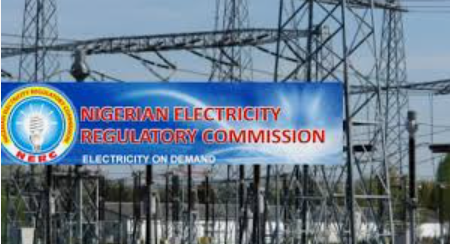Paragraph 1: NERC Orders Compensation for Inadequate Power Supply
The Nigerian Electricity Regulatory Commission (NERC) has directed nine electricity Distribution Companies (DisCos) to compensate customers in Band A, the highest tariff category, for failing to meet the guaranteed minimum daily supply of 20 hours as stipulated in the April 2025 Multi-Year Tariff Order (MYTO). This order impacts customers across 557 streets served by 152 feeders in the DisCos’ franchise areas. The compensation, which is for the month of April, will be provided through electricity credits or improvements in power supply. This directive comes a year after a controversial tariff hike of over 300% for Band A customers, raising questions about the effectiveness of the tariff increase in improving service delivery.
Paragraph 2: Affected DisCos and the Scope of Compensation
The DisCos required to compensate their Band A customers include Abuja Electricity Distribution Company (AEDC), Eko Electricity Distribution Company (EKEDC), Port Harcourt Electricity Distribution Company (PHED), Kano Electricity Distribution Company (KEDCO), Kaduna Electricity Distribution Company (KAEDC), Ikeja Electric (IE), Ibadan Electricity Distribution Company (IBEDC), and Benin Electricity Distribution Company (BEDC). Enugu Electricity Distribution Company (EEDC) is also mandated to upgrade power supply to specific areas. EKEDC has the largest number of affected streets (155), followed by PHED (131) and IE (105). AEDC is required to compensate customers on 74 streets. The compensation covers a wide range of areas, including residential, commercial, and government establishments, highlighting the widespread nature of the power supply deficit.
Paragraph 3: Specific Locations and Institutions Affected
The order identifies specific locations and institutions affected by the power supply shortfall. In Abuja, areas slated for compensation or upgrade include Army resettlement, Papal Ground, Aso Garden, various commercial establishments, NERC headquarters, CBN headquarters, the Chinese Embassy, the Nigerian Identity Management Commission, the Defence headquarters, and the Works and Housing ministry. These locations represent a cross-section of residential and commercial areas, as well as critical government infrastructure, emphasizing the broad impact of inconsistent power supply. The inclusion of government agencies like NERC and the CBN further underscores the pervasive nature of the issue.
Paragraph 4: NERC’s Justification and Enforcement Mechanisms
NERC’s directive is based on the “Order on Migration” and the “Directive for Operationalisation of Band A Feeders,” which outline the framework for customer migration between tariff bands and compensation for service failures. The commission mandates compensation for Band A feeders that fail to deliver the promised 20 hours of supply, even if the average supply exceeds 18 hours. For feeders consistently failing to meet the minimum supply threshold, NERC orders a downgrade to a lower tariff band, along with appropriate compensation. This dual approach of compensation and downgrade aims to hold DisCos accountable for their performance and incentivize service improvements.
Paragraph 5: Downgrades and Upgrades Reflecting Service Performance
Beyond compensation, NERC’s order also includes feeder downgrades and upgrades based on performance. 58 streets across 15 feeders face downgrade from Band A due to persistent underperformance, potentially impacting the revenue of the affected DisCos. AEDC faces the most significant downgrade, with 26 streets affected. Conversely, 33 streets on 15 feeders are being upgraded to Band A due to improved service delivery. EEDC leads in upgrades with 21 streets moving to the higher tariff band, followed by Yola Electricity Distribution Company and Jos Electricity Distribution Company with six streets each. This dynamic adjustment of tariff bands reflects NERC’s commitment to a performance-based tariff system.
Paragraph 6: Continued Customer Dissatisfaction and Implications
Despite the tariff hikes implemented a year ago and the expansion of the Band A customer base, customer dissatisfaction with electricity service remains high. Many households and businesses continue to grapple with erratic power supply, leading to increased production costs, reduced productivity, and a strain on disposable income. The compensation ordered by NERC, while a necessary step, may not fully address the underlying issues plaguing the electricity sector. Long-term solutions require significant investment in infrastructure, improved operational efficiency, and strengthened regulatory oversight to ensure consistent and reliable power supply for all consumer categories. The ongoing challenges highlight the need for a comprehensive and sustainable approach to power sector reform in Nigeria.














